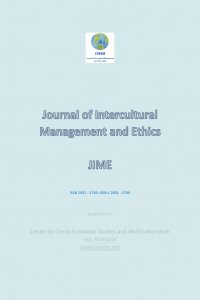Jewish Perspective on Social Justice and Ethics: Implications for the Modern World
Jewish Perspective on Social Justice and Ethics: Implications for the Modern World
Author(s): Hershey H. Friedman, Joshua KrauszSubject(s): Social Philosophy, Socio-Economic Research, Sociology of Religion
Published by: Center for Socio-Economic Studies and Multiculturalism
Keywords: Social Justice; Chesed, Tzedek; Human dignity; Humanity in God's Image; Financial Reform; Loving the Stranger; Tikkun Olam;
Summary/Abstract: Social justice is a multifaceted term with many meanings. Initially used by Catholics, it later became an integral part of the official teachings of the Roman Catholic Church. Today, it has been embraced to a large degree by secular humanists. Universities often present discussions and interpretations of historical occurrences from a woke perspective, emphasizing concepts like intersectionality, race, oppression, colonialism, and cancel culture, which frequently align with a neo-Marxian viewpoint. This paper will examine social justice from a Jewish perspective. It will demonstrate that its origins trace back to the Hebrew Bible/Torah and Rabbinic teachings. In fact, most biblical prophets, such as Isaiah, Micah, Zechariah, and Jeremiah, were deeply concerned with the mistreatment of the needy and vulnerable members of society. Principles such as tzedek (righteousness) and chesed (deeds of lovingkindness) are core defining values of the Bible. These enduring moral principles have been tested across millennia for their integrity and authenticity. Moreover, Torah-centric ideas promote a universal approach encompassing commercial, societal, and global ecosystems
Journal: Journal of Intercultural Management and Ethics
- Issue Year: 7/2024
- Issue No: 2
- Page Range: 53-74
- Page Count: 22
- Language: English

